FARM, HOME & GARDEN: SPECIAL OFFERS FROM THE WINTER CATALOGUE
Here are our leading offers for Farm, Home& Garden produces from the Winter catalogue. Prices may vary due to freight. Used for…
Free Delivery when you spend $49 or more. (Weight Limits Apply – view more)
 Dog
Dog

Shop Tuckers great range of dog food, health care & wellness products today. Delivered or Click & Collect.
 Cat
Cat

Tuckers has a great range of cat food, health care & litter products for your beloved cat. Shop now.
 Horse
Horse

Tuckers carry a huge range of food, supplements, health care, hoof care and grooming accessories. Shop now.
 How To Keep Your Horse In Top Shape With Kelato Swelldown
How To Keep Your Horse In Top Shape With Kelato Swelldown Get your Free Balanced TruGuide Diet
Get your Free Balanced TruGuide Diet WET FEET: NUTRITIONAL MANAGEMENT OF HORSES IN WATER-LOGGED AREAS
WET FEET: NUTRITIONAL MANAGEMENT OF HORSES IN WATER-LOGGED AREAS GastroAID Everyday: The unique gut health supplement with science-backed ingredients
GastroAID Everyday: The unique gut health supplement with science-backed ingredients EQUINE HEALTH: SPECIAL OFFERS FROM THE WINTER CATALOGUE
EQUINE HEALTH: SPECIAL OFFERS FROM THE WINTER CATALOGUE Chook/Bird
Chook/Bird

Tuckers range of food, accessories & health care products will keep your chooks & birds happy and healthy.
 Small Animal
Small Animal

Shop food and health care products for your little mates @ Tuckers. Delivered or Click & Collect.
 Farm/Garden
Farm/Garden

Tuckers carry a wide range of sheep & cattle products, plus everything you’ll need around the farm or garden.
 Dog
Dog

Shop Tuckers great range of dog food, health care & wellness products today. Delivered or Click & Collect.
 Cat
Cat

Tuckers has a great range of cat food, health care & litter products for your beloved cat. Shop now.
 Horse
Horse

Tuckers carry a huge range of food, supplements, health care, hoof care and grooming accessories. Shop now.
 How To Keep Your Horse In Top Shape With Kelato Swelldown
How To Keep Your Horse In Top Shape With Kelato Swelldown Get your Free Balanced TruGuide Diet
Get your Free Balanced TruGuide Diet WET FEET: NUTRITIONAL MANAGEMENT OF HORSES IN WATER-LOGGED AREAS
WET FEET: NUTRITIONAL MANAGEMENT OF HORSES IN WATER-LOGGED AREAS GastroAID Everyday: The unique gut health supplement with science-backed ingredients
GastroAID Everyday: The unique gut health supplement with science-backed ingredients EQUINE HEALTH: SPECIAL OFFERS FROM THE WINTER CATALOGUE
EQUINE HEALTH: SPECIAL OFFERS FROM THE WINTER CATALOGUE Chook/Bird
Chook/Bird

Tuckers range of food, accessories & health care products will keep your chooks & birds happy and healthy.
 Small Animal
Small Animal

Shop food and health care products for your little mates @ Tuckers. Delivered or Click & Collect.
 Farm/Garden
Farm/Garden

Tuckers carry a wide range of sheep & cattle products, plus everything you’ll need around the farm or garden.
Home / Articles / Farm/Garden / THE WORLD OF WEEDS

Courtesy Rocky Point
Weeds always seem to get a bad rap, but there’s more to weeds than meets the eye.
Weeds I guess are just opportunistic plants germinating in locations we have not planted them. Often weeds play an important role within our environment. They can protect soil from high temperatures, prevent erosion, create habitat for insects and even produce nectar-producing flowers for bees and other beneficials, like clover for example and dandelions.
What do weeds really mean?
Besides showing us that they are resilient tough survivors, weeds are often an indicator of other possible issues going on within your soil and garden.
For example, nut grass is what we call a pioneer plant. Meaning it is a plant that comes up first when the soil is disturbed. This is very important when it comes to stabilising loose bare soil and halting erosion.
In compacted lawn areas where soil has become acidified from continual applications of synthetic lawn fertilisers, certain weeds like bindi and other flat-leaf spreading weeds find these conditions favourable and will be an indicator of this compaction and acidity.
In other situations, the appearance of certain weeds can mean a particular nutrient deficiency. For example, patches of false dandelion can indicate a deficiency of Potassium and Phosphorus and so forth.
Preventing weeds:
Knowing some of the above means you can take preventative measures to stop these weeds from getting a foothold in the first place.
In lawn areas, annual aeration, and applications of dolomite will sweeten the soil, and the use of organic over synthetic fertilisers can be a start.
In the garden, the best method of weed suppressing is to mulch thickly and often with mulch like Rocky Point Sugar Cane Mulch for edibles, or Rocky Point Pine Bark or Rocky Point Tea Tree Mulch for shrubs or flowers. Try and remove any weeds before they flower and set new seeds, this will help break the cycle of infestations.
Removing weeds:
If the weeds have gotten away there are a few certified organic weedkillers on the market, but you need to be aware that most of them are not selective. This means that they will kill both weeds and garden plants alike.
Clearing large weed-infested areas can be done using the above sprays or other options are solarisation, sheet mulching or using a steam or flame weeder. For larger woody weed trees and shrubs you may need to resort to the cut-and-paint method using a registered woody weed killer.
Eating weeds:
Then again, some weeds are edible. I always joke and say, have your ultimate revenge on your weeds by eating them! Not all weeds are edible, so don’t go running outside and eating them all, do your research first.
Weeds you can eat:
Cobbler’s pegs, fat hen, stinging nettle, shepard’s purse, milk thistle, nutgrass, chickweed, purslane, dandelion, clover, and dock.
Entire range - quick and secure delivery
Buy securely online and pickup at your local store
Call your local store and come on down to pickup
© 2024 Tuckers Pet & Produce.
